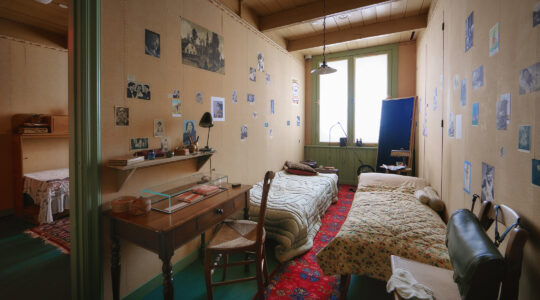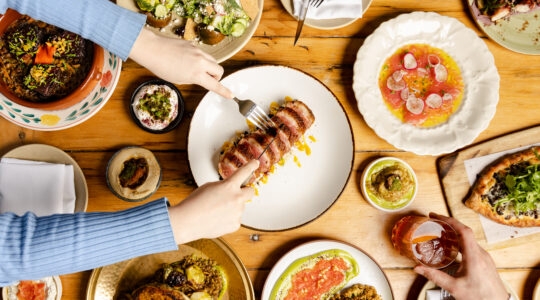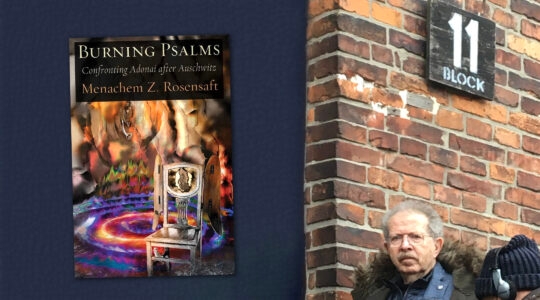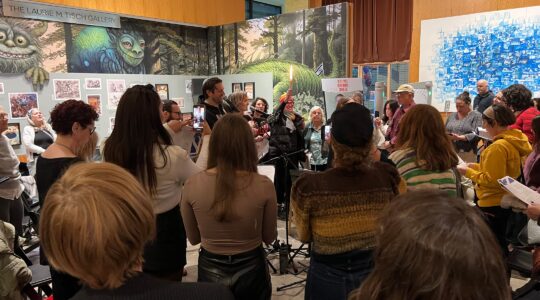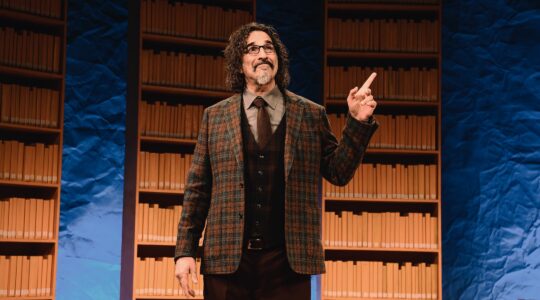Like most New Yorkers, Lilly Bloch, a 91-year-old Queens resident, has spent the last several weeks sheltering in place in her house. Over that time she has heard the frequent complaints about isolation, limited contact with the outside world and fear of what tomorrow will bring.
She understands people’s concerns, but for her, words like “isolation” and “sheltering in place” have a different kind of echo. And while a silent killer like the coronavirus is surely frightening, being hunted by a flesh-and-blood one in a Nazi uniform is another matter altogether.
“We went through so much tougher” experiences, she told The Jewish Week. “I was doing that for 2½ years.”
“We” were fellow Holocaust survivors. The 2½ years were spent hiding in a hole in the ground in Poland.
While most residents of their village, Podwoloczyska, were killed in the Final Solution, Bloch, her parents and an aunt caught a break. A kind-hearted Polish farmer who was a family friend, Antony Źondlo, risked his life secretly protecting them. They survived in his cramped, moldy, lightless, unheated, hillside grain cellar.
The isolated farmhouse stood at the edge of a forest. Her family’s “home” until liberation was a 6-foot-by-10-foot-by-5-foot dugout.
The current quarantine, Bloch said in a phone interview, isn’t so difficult. “It’s not so pleasant, but it’s not so terrible.” Bloch, who spends her days reading, watching the news on television and stepping out on her porch for a little exercise. “I cannot complain.”
Bloch puts the current situation, as dangerous as it is, in perspective. “You cannot compare it in any way to what we lived through. Nobody is looking for me, to kill me.”
When her Czaban family was liberated by the Russian Army on March 13, 1944, young Lila (she changed her name when she came to the U.S. in 1949, married to fellow survivor Sam Bloch) had to learn how to walk again; her muscles had atrophied from lying down for months. She had to learn how to talk again; during their stretch underground, Bloch and her family couldn’t converse above a whisper, in order to escape detection. And she had to learn how to be a “normal” person again, after separation from her friends.
Bloch said she doesn’t lecture or criticize those younger people she hears complaining about today’s new normal. “I guess I’m very patient after what I went through.
“Now we’re all in the same boat,” she tells people.
Bloch’s attitude is typical of many Holocaust survivors, said Michael Berenbaum, an author and expert on the Shoah. “Survivors have a stoic realism. For many survivors,” the reply to complaints about forced isolation because of Covid-19 is, “We experienced worse. This is not the worst thing they have gone through.”
He says tens of thousands of European Jews were in hiding “for a long time,” hundreds of thousands more for a shorter duration.
After liberation, Bloch and her family kept in touch with Źondlo, who died in 1954. They sent him items that he could sell amidst Poland’s depressed post-war economy. Bloch successfully nominated Źondlo to be named a Righteous Among the Nations by Yad Vashem, Israel’s Holocaust authority. “He was a wonderful person,” she said.
Having survived in a hole in the ground, Bloch said of the current situation, “Now I have food and I have light.”
And she has a hard-won positivity. “I am optimistic” about how the coronavirus outbreak will play out. Guided by her faith, Bloch said, “I hope that whatever God wants, that will happen.”
steve@jewishweek.org
The New York Jewish Week brings you the stories behind the headlines, keeping you connected to Jewish life in New York. Help sustain the reporting you trust by donating today.
